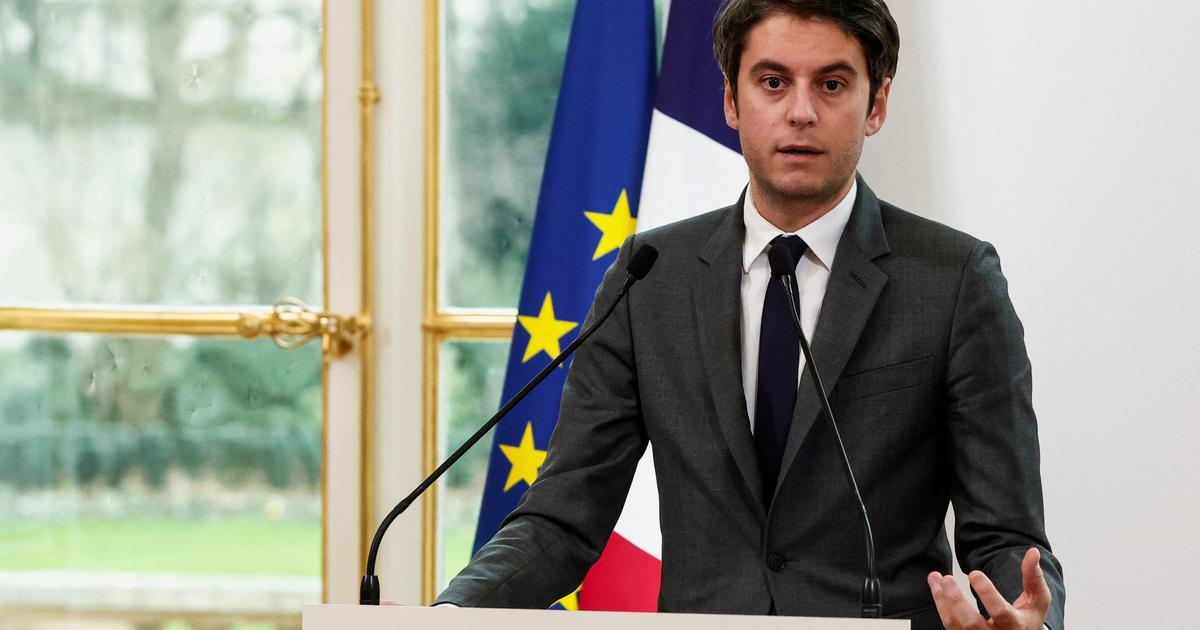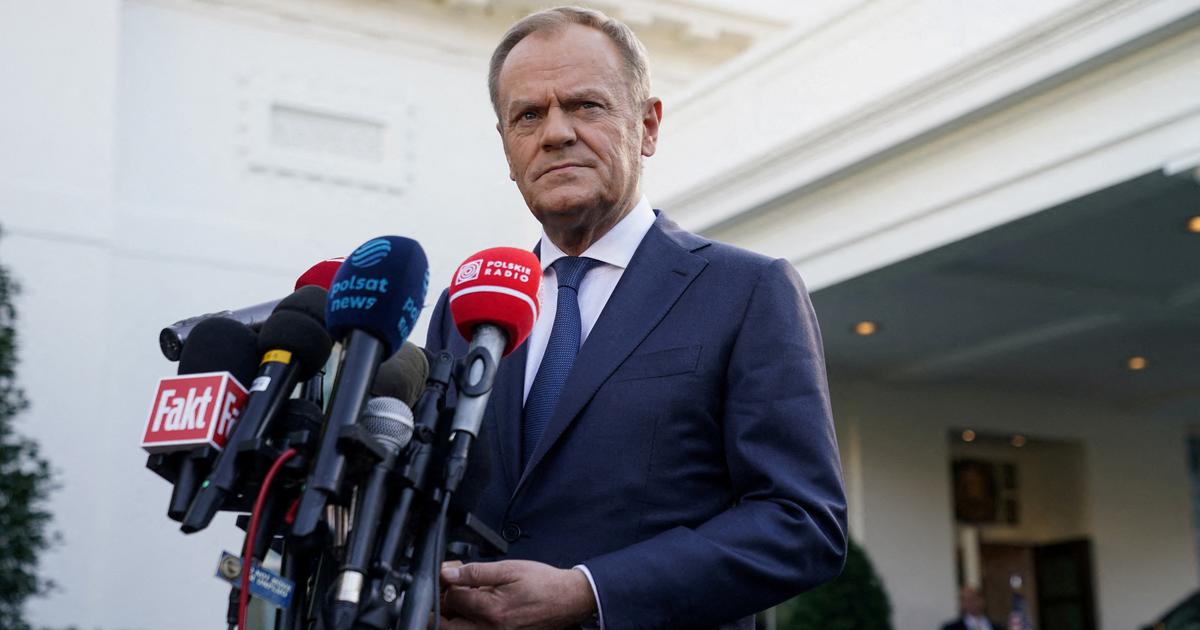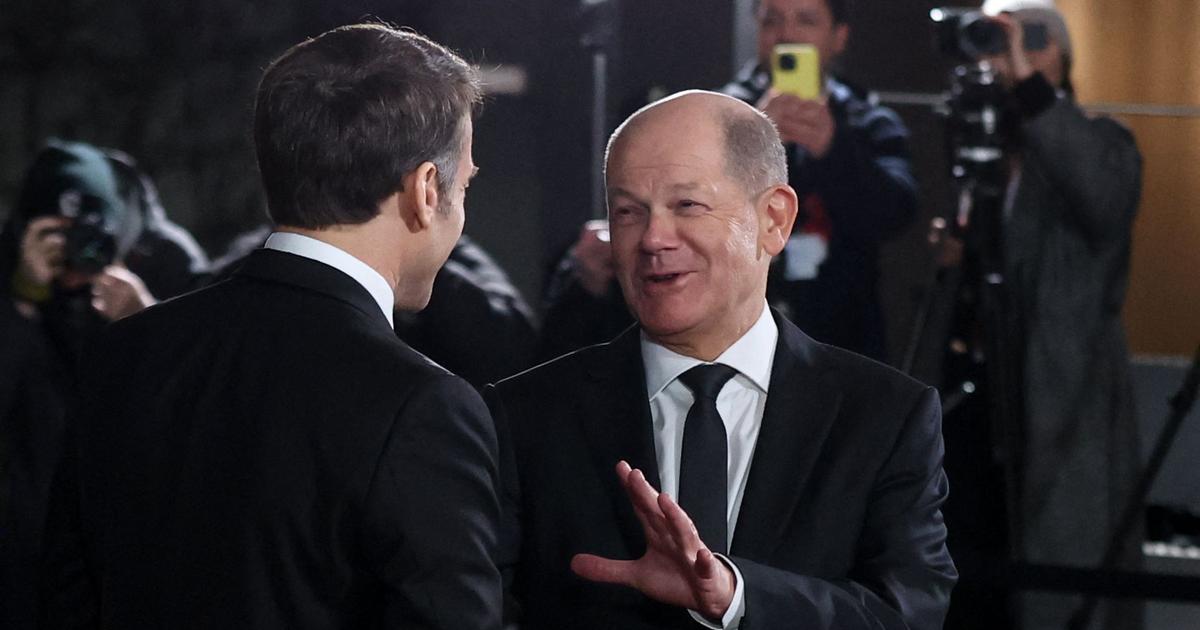It was a lunch to say things to each other's faces, put everything on the table, begin to rebuild a relationship that, like other times in history, has its ups and downs.
The French president, Emmanuel Macron, and the German chancellor, Olaf Scholz, conspired this Wednesday in Paris to approach positions in key fields for Europe such as energy, defense and space innovation.
Macron and Scholz, in reality, would have had to meet throughout the day accompanied by their ministers at the Château de Fontainebleau, south of Paris.
This was the program until, a week ago, Paris and Berlin unexpectedly announced that the Franco-German council of ministers was suspended due to lack of agreement on key issues.
It was decided to postpone it, in principle, until January.
Instead of a bilateral meeting of ministers, a meal in
petit committee
.
Instead of pompous joint statements;
of ambitious proclamations on the future of Europe and far-reaching agreements on the economy, energy or defence;
and the traditional final press conference of both leaders between smiles and signs of complicity, a brief statement and a message on the social network Twitter.
Nothing more.
Neither press conference nor declarations of eternal friendship.
"It was a very good and important conversation today, about European energy supply, about rising prices and joint weapons projects," Scholz wrote on Twitter.
"Germany and France are closely linked and face challenges together," he added.
The Elysée Palace, in a statement, explained that Macron and Scholz "addressed various strategic aspects of the bilateral relationship to advance a joint agenda of sovereignty, reindustrialization and decarbonization in Europe."
Regarding energy, "they reaffirmed their adherence to the principle of solidarity between both countries and at a European level" and their commitment to reducing greenhouse gas emissions.
The list of disagreements in recent weeks in this field is long, from the MidCat gas pipeline to the limit for gas prices.
The president and the chancellor spoke of the Europe of defense, according to the Elysee, one of the origins of the current disagreement due to the anti-missile shield promoted by Germany and whose necessity France questions.
They also discussed European space policy and the chancellor's upcoming visit to China.
The work will be laborious.
That the lunch ended without any firm agreement or announcement or photo designed to make headlines, evidence that the objective was above all to heal wounds, put the broken dishes back together.
What happened last week, the postponement of the bilateral council of ministers, was an unusual gesture: a way for France, the host, to signal impatience with a Germany that, as Macron said at last week's European summit, is running the risk of “isolating” oneself in the EU.
There is a sense of grievance in Paris about Berlin.
As if the French expected more from the relationship with a changing Germany that, since the Russian invasion of Ukraine last February, has overcome its historical allergy to military spending, has seen the illusion that Russia would be a reliable supplier of energy collapse, and rethinks its place in Europe and the world.
The war at the gates of the European Union, at the same time, sows doubts about the Franco-German engine or couple.
Neither Berlin nor Paris, unlike their partners in Central and Eastern Europe, saw the invasion and crimes of Vladimir Putin arrive, whom they entertained almost until the last moment and with whom they maintain an open channel of dialogue.
Neither Berlin nor Paris, but rather Washington, bears the brunt of military aid to kyiv.
The authority of both powers to lead Europe has been diminished.
Wednesday's lunch lasted three hours and Macron, Scholz and their closest collaborators participated.
Later, they left them alone for 20 minutes, face to face, without intermediaries.
The French president, who developed a relationship of trust and even admiration with Chancellor Angela Merkel, has failed to connect with his successor.
They needed to talk to each other alone, to get to know each other better.
Follow all the international information on
and
, or in
our weekly newsletter
Subscribe to continue reading
read without limits
Keep reading
I'm already a subscriber

/cloudfront-eu-central-1.images.arcpublishing.com/prisa/PSRKGNVJ7AXXQNSSTPTZVNVX3U.jpg)







